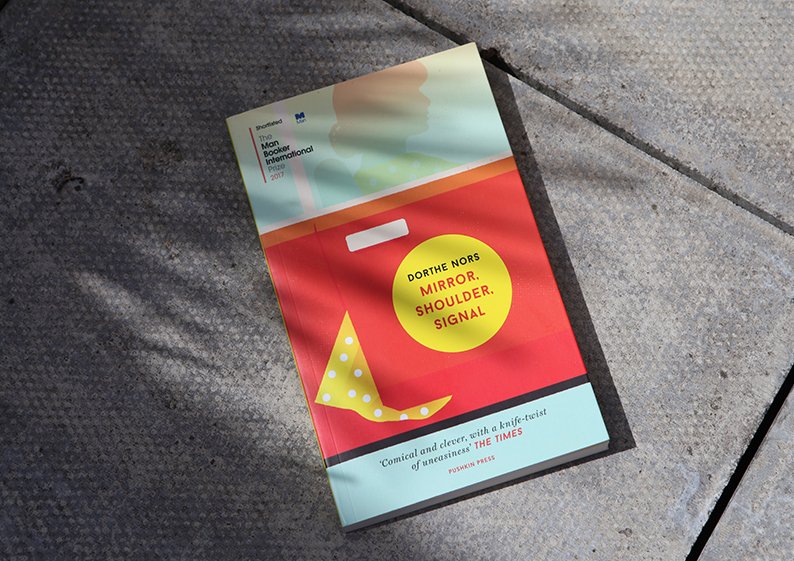
The TOAST Book Club is published on the last Friday of every month. The reviews are written by Betsy Tobin, author of five novels and joint founder of[email protected] an independent bookshop just up the road from our head office, situated in leafy Highbury. Though the book club exists in a purely digital sphere we hope that you will add your own opinions and thoughts below.*
Sonja, a middle-aged singleton and translator of crime fiction, has taken it upon herself to learn to drive. She is childless, terminally single, and suffers from positional vertigo', an inherited form of dizziness that she has carefully chosen not to disclose on her driving application. But she is also a fighter who doesn't give up, perhaps even when she should.
Mirror, Shoulder, Signal is a unique and often painfully funny meditation on how to be lost within your own life -- and Sonja is an utterly beguiling heroine. Like driving, she is good at life in theory, but not in practice, and does it best in the wrong direction.'
When the novel opens Sonja has become a virtual prisoner of her bossy, racist, chain-smoking driving instructor Jytte, who in between shouting instructions, dumps a verbal download of her life. Jytte is too busy offloading to actually instruct, so in six months of lessons she has never let Sonja change gears, barking out commands without changing topics and grabbing the gearstick when necessary.
Crucially, both women are displaced from their homeland, having fled their northern upbringing in Jutland years before to carve out a new life in Copenhagen. But though Sonja has managed to obliterate all traces of her rural accent, her new life hasn't been forthcoming. She has been successful at work but has failed to harvest' the love of men, and finds herself increasingly isolated.
As she drives in endless circles around the city, Sonja feels the constant, seductive, and often treacherous pull of the past: of severed family ties and failed relationships, of longing and failed belonging. She refuses to adapt, and longs to take flight'. But where to fly to?
Her massage therapist Ellen has parsed Sonja's body and offers up a diagnosis: her buttocks are tight from repressed emotion, her archless feet don't want to grab the earth', the painful knot between her shoulder blades is evidence of a bruised heart, and her dizziness is a form of spiritual malaise. In Ellen's eyes, a shoulder is not a shoulder, but a feeling', and hands are not hands but expressions of spiritual states. Each woman struggles to decode' the other in a circus of mutual interpretation'.
Dorthe Nors has been publishing novels and short fiction since 2001, but she did not begin to make waves outside Denmark until more recently: in 2009 she became the first Dane to be published in The New Yorker, and Mirror, Shoulder, Signal was shortlisted for this year's International Man Booker Prize.
Her genius lies in is her eccentric but uncannily accurate rendition of modern life and relationships: thoughts capsize into one another at breathtaking speed, sometimes disorienting but always instantly recognisable. Her narrative is bold and unflinching: a sort of breathless, daggered, confessional prose that grips the reader with emotional truth.
Nors has said that this is a story about longing to go back to a place that no longer exists'. Sonja desperately seeks liberation from her own life, and ultimately must be her own agent of change. Small insurrections count,' she tells herself. But it is not until she meets a stranger on a train that Sonja summons the courage to finally change gears and steer herself in a new direction. Mirror, Shoulder, Signal did not win this year's International Booker, but it could have: let's hope that Dorthe Nors continues to astonish from across the North Sea.
*Allwho comment will be entered into a prize draw to win one of our newtote bags.
Read more reviews from theTOAST Book Cluborsearch for your local bookshophere.
Add a comment